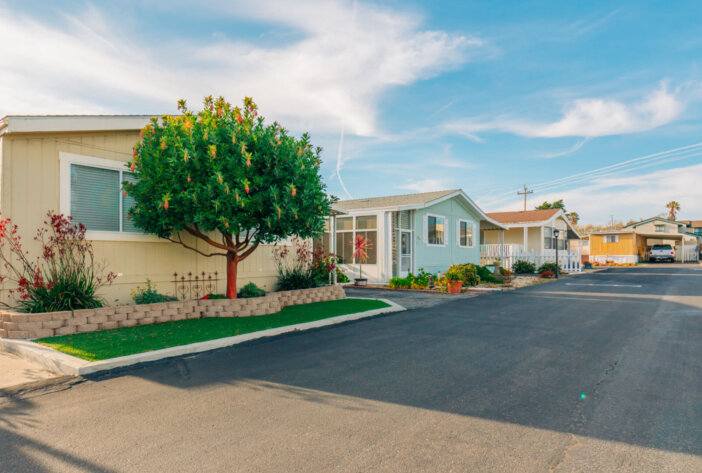
Mobile homeowners pay lot rent for the space they lease, while property taxes are usually the responsibility of the landowner. Understanding these obligations is important for homeownership.
Tom Clark March 26, 2024 Mobile Home Living
Lot rent and property taxes are often confusing for those interested in living in a mobile home park or land lease community. This post will provide a clear explanation of these concepts and their connection to homeownership. We’ll discuss what lot rent is, how property taxes are involved, and the advantages of paying property tax. Understanding the context is important before we delve into the details. Disclosure: As an Amazon Associate, this site earns from qualifying purchases. Thank you!

Lot rent is the monthly fee paid by mobile homeowners for the space they lease in a mobile home park or land lease community. This arrangement allows individuals to own their homes but rent the land. Hey hey – real quick! Don’t forget to subscribe to get our best content 🙂
It’s similar to renting an apartment, except you own the home. Generally, lot rent covers the right to use and occupy the space where your mobile home is located. The amount can vary depending on factors like the location of the park, lot size, and community amenities. In some cases, lot rent may also include services like trash pickup, water and sewer, and maintenance of common areas. However, it’s important to thoroughly understand your rental agreement before signing, as inclusions can vary between parks.

Property taxes are essential for supporting local community services like public schools, libraries, parks, and emergency services such as fire and police departments. They also contribute to infrastructure needs like road maintenance and street lighting. Without these tax revenues, local governments would struggle to provide these essential services. Understanding and budgeting for property tax expenses is crucial for responsible homeownership. Property taxes are recurring expenses that homeowners need to pay annually. It’s important to factor them into your budgeting and financial planning processes to avoid unexpected financial strain. Timely payment of property taxes is crucial to avoid legal complications, such as a lien on your property, a negative impact on your credit score, or even foreclosure. Paying property taxes also makes you eligible for potential tax deductions. The Internal Revenue Service allows deductions for real estate taxes and other property expenses under certain circumstances, providing further incentive to stay on top of these payments. Understanding and budgeting for lot rent and property taxes is essential for a stress-free homeownership experience. These costs are a vital part of your housing expenses and should be included in your financial planning. Being well-informed about your tax obligations not only helps you avoid legal troubles but also enables you to capitalize on any available tax benefits. Take the time to learn about these aspects, seek professional advice if necessary, and plan accordingly for a seamless and enjoyable homeownership journey.